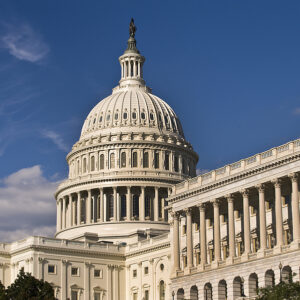This past June, trade ministers at the World Trade Organization (WTO) agreed to “waive” certain intellectual property rights on COVID-19 vaccines. That was a mistake.
They also agreed that, by mid-December, they would consider expanding the waiver to include diagnostics and therapeutics. That would be a disaster.
Acting on a half-baked proposal by India and South Africa, the WTO’s members agreed to the waiver for five years. The original submission said that “[t]here are several reports about intellectual property rights hindering or potentially hindering timely provisioning of affordable medical products to the patients.” As proof, it offered a single citation to two media stories, neither of which was directly on point. But it didn’t matter. The narrative was politically timely. It was also wrong.
To their credit, many in Congress demanded more evidence than that. In 2021, for example, H.R. 3788, the Protecting American Innovation Act, called on the U.S. Trade Representative to give “an expert analysis” on how a waiver would possibly “expand vaccine production and access.” In 2022, H.R. 7582, the NO Free TRIPS Act, went even further, barring the president from negotiating “any withdrawal, suspension, waiver, or modification” of intellectual property without first getting “explicit authorization from Congress.” Neither bill panned out. Congress remains in the dark, and out of the loop.
The WTO already makes provisions for governments to use compulsory licensing to secure access to patented drugs during an epidemic. In 2021, for example, Bolivia announced its intention to use this “flexibility” to import COVID-19 vaccines. So did Antigua and Barbuda. Both could have accessed voluntary licenses, which often result in lower prices than compulsory ones. As for the 35 least-developed countries in the WTO, they do not have any obligations on intellectual property rights until 2034.
If compulsory licenses did not gain traction during COVID-19, why would suspending patents help? Twenty years ago, developing countries complained they could not make their own generics under compulsory licensing, and needed to source from Canada or India, for example. The WTO’s Agreement on Trade-Related Aspects of Intellectual Property Rights was tweaked to allow for this sourcing from third countries. It is a stretch to think that these same developing countries now have the capacity to produce their own mRNA-based vaccines.
A WTO report finds three-quarters of COVID-19 vaccine patenting is being done by private-sector firms. Research and funding conducted by governments and universities helped seed basic science, including with respect to mRNA. But the private sector brought these vaccines to market, based overwhelmingly on patents that precede COVID-19. Indeed, 83 percent of the patents were filed before 2019. In the case of mRNA, 32 of the 34 patent families are pre-pandemic. That intellectual property has facilitated unprecedented collaborations among private-sector innovators, including Pfizer’s and BioNTech’s joint research and development of the first mRNA vaccine for COVID-19.
Some of the bills introduced in the House ask whether there are alternative means of boosting wider access to COVID-19 vaccines. One is obvious: Countries can lower their tariffs on patented drugs. As hard as it is to believe, 20 countries have no legal limit—or bound rate—on these tariffs. The average tariff on vaccine inputs is 28.6 percent. The WTO says 23 of the 27 top vaccine manufacturing countries have tariffs of at least 5 percent on five of the 13 key inputs used for making vaccines. India has at least 5 percent tariffs on all 13. Getting more countries to join the WTO’s “zero-for-zero” agreement on pharmaceutical tariffs is a good place to start.
What’s supposed to happen by mid-December? WTO members will consider extending the waiver to diagnostics and therapeutics, not just vaccines. That would imperil countless intellectual property rights. What exactly is a COVID-19 diagnostic or therapeutic? Wouldn’t this mean anything pertaining to a person’s respiratory system? Isn’t that essentially everything?
Expanding the waiver would set an untenable precedent and leave the world less prepared for the next pandemic.
The Biden administration is hedging its bets. After defying all expectations by supporting the waiver, the U.S. government is throwing cold water on the belief that a decision on an expansion, rather than just talking about one, is due by December. Either way, members of Congress who support intellectual property should draft an updated version of the NO Free TRIPS Act to ensure a rigorous study and a vote.


